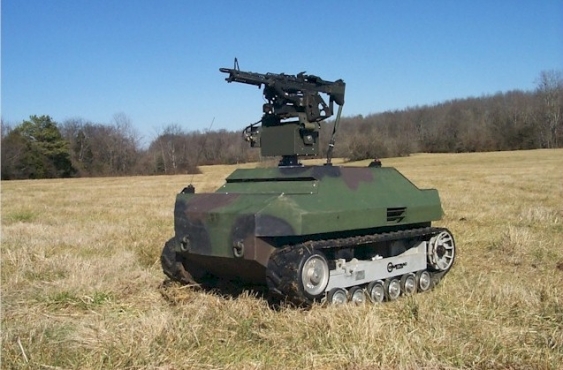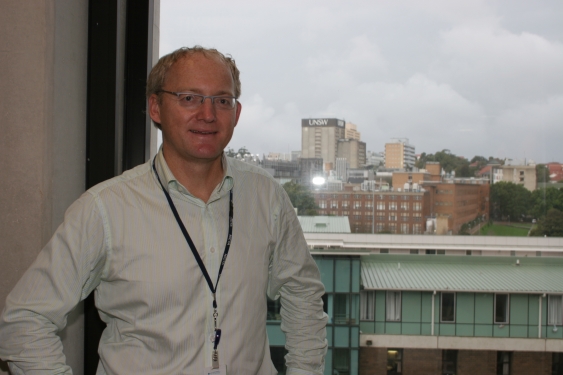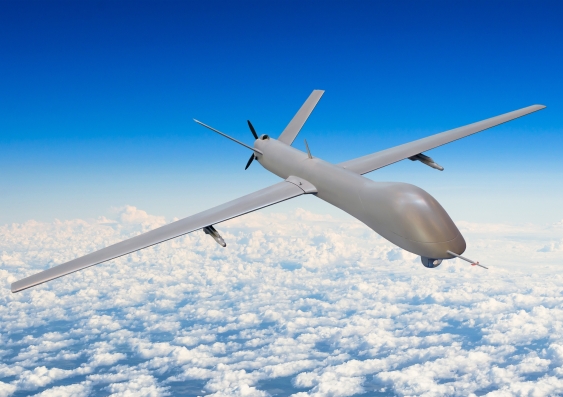An open letter from 122 of Australia’s leading researchers in robotics and Artificial Intelligence (AI) has called on Australian Prime Minister Malcolm Turnbull to take a stand against weaponisng AI.
The letter, signed by many of Australia’s top experts in AI and robotics, asks Mr Turnbull and his government to become the 20th country to call for a ban on lethal autonomous weapons at an upcoming United Nations (UN) Conference on the Convention on Certain Conventional Weapons (CCW).
The letter was released simultaneously with one signed by hundreds of AI experts in Canada, including two of the founders of Deep Learning, AI pioneers Geoffrey Hinton and Yoshua Bengio, and coordinated by Canada Research Chair in Ethics, Law and Technology at the University of Ottawa, Professor Ian Kerr. The Canadian letter urges the Canadian Prime Minister Justin Trudeau to support such a ban.
Both letters follow a call to the UN in August by 137 founders of robotics and AI companies warning against opening a Pandora’s box of lethal autonomous weapons. Signatories to this call included British AI researcher and CEO of Google’s DeepMind Demis Hassabis, as well as well-known technologists like Elon Musk, founder of OpenAI, and Gary Marcus, founder of Geometric Intelligence.
In their letter to Mr Turnbull, the Australian AI experts say lethal autonomous weapons lacking meaningful human control sit on the wrong side of a clear moral line.
“To this end, we ask Australia to announce its support for the call to ban lethal autonomous weapons systems at the upcoming UN Conference on CCW. Australia should also commit to working with other states to conclude a new international agreement that achieves this objective,” the letter says.

Unmanned land vehicles like this one, controlled remotely, are already in production. Image: Wikimedia Commons.
“In this way, our government can reclaim its position of moral leadership on the world stage as demonstrated previously in other areas like the non-proliferation of nuclear weapons,” it says.
“With Australia’s recent election to the UN’s Human Rights Council, the issue of lethal autonomous weapons is even more pressing for Australia to address.”
The organiser of the Australian letter, Scientia Professor of AI at UNSW Sydney Toby Walsh, says the AI and robotics communities have sent a clear and consistent message about this issue in recent years.
“We need to act now to ban lethal autonomous weapons,” Walsh says. “Artificial Intelligence can be used for immense good, to improve productivity, to tackle climate change, and to improve health care.
“Equally, AI can be used to make our lives much worse, especially if we let machines decide who lives and who dies. We get to choose how any technology is used. I very much hope we make the right choice here. We have little time to act before these technologies are in daily use.”

Professor Walsh says without a ban, there will be an arms race to develop increasingly capable autonomous weapons.
Walsh also helped organise a previous open letter released at the main AI conference in Buenos Aires in 2015, which warned of the dangers of autonomous weapons and again called for a ban. This letter was signed by thousands of researchers in AI and robotics from around the world, and was endorsed by British physicist Stephen Hawking, Apple co-founder Steve Wozniack and cognitive scientist Noam Chomsky, among others.
Special Rapporteur to the Human Rights Council Professor Christof Heyns was the first to call on the UN to address the issue of autonomous weapons, arguing in 2013 that machines should not have life and death powers over humans.
The Australian letter also comes ahead of UNESCO’s World Science Day for Peace and Development on 10 November, an internationally celebrated day that highlights how science, peace and development are interlinked.
Human Rights Watch has invited Walsh to speak at the UN in Geneva about autonomous weapons on 13 November.
“I will be back at the UN next week warning of the dangers of lethal autonomous weapons,” he says.
“It’s not the Terminator that experts in AI and robotics like myself are worried about but much simpler technologies currently under development, and only a few years away from deployment. Without a ban, there will be an arms race to develop increasingly capable autonomous weapons.
“These will be weapons of mass destruction. One programmer will be able to control a whole army. Every other weapon of mass destruction has been banned: chemical weapons, biological weapons, even nuclear weapons. We must add autonomous weapons to the list of weapons that are morally unacceptable to use.”
Walsh’s new book, It’s Alive!: Artificial Intelligence from the Logic Piano to Killer Robots, goes into detail about the arguments for and against lethal autonomous weapons.
Media contacts:
UNSW Media Office, Wendy Frew, (02) 9385 2481
RESOURCES AVAILABLE FOR MEDIA USE




